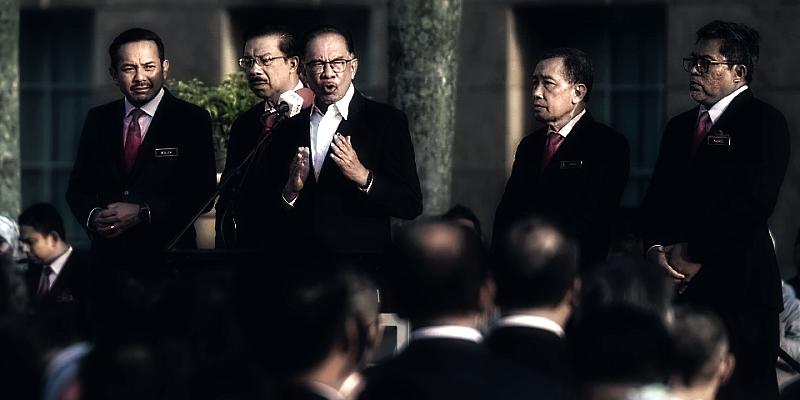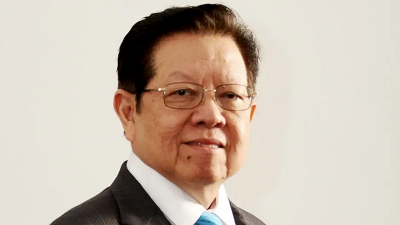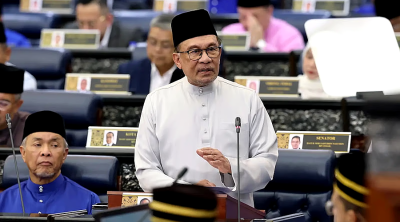It is hoped that the new prime minister will bring on refreshing new changes to the country in a bid to revitalize the stalled economy, control the runaway inflation and lessen the financial burden of average Malaysians through good governance and the implementation of institutional reforms.
As soon as Anwar Ibrahim was sworn in on November 24, he has been working very hard to put up a slimmer cabinet that will not have any “special positions” besides vowing to cut unnecessary expenses and prevent the abuse of power in government procurement.
No doubt Anwar has been going through a lot of hardships during the past more than 20 years because of the PM post, having suffered the humiliation of jailing.
He was once in high office, and is therefore well familiar with corruption practices and abuse of power in government departments.
He is also well aware of the disastrous consequences of trading government posts for political allegiance. As such, practices that could impact the country’s further development must be axed without hesitation.
As soon as he has assumed office, Anwar has instructed that he would not want any refurbishment of his office nor any new luxurious sedan. He has set up an example for his cabinet colleagues whom he will soon appoint and who will believably look to him as their role model.
Anwar has also put forward the proposal to cut the salaries of cabinet members. Even with just a 30% cut in a minister’s salary, the whole-year saving for the government could be in the region of RM18 million, which while may not be a lot, has helped reverse the once negative public perception of the federal cabinet.
Anwar is expected to complete the process of putting up his cabinet for the country’s first ever unity government very soon. He said days ago that he would trim the size of his cabinet.
During Ismail Sabri’s time, the federal cabinet had a bloated line-up of 70 ministers and deputy ministers manning a total of 27 ministries, including the prime minister’s department, with eye-popping administrative expenses, a consequence of decades-long “political patronage” practice for loyal MPs, and this has seen ministries split into more ministries, often with ambiguous overlapping duties.

Looking back, when Tunku Abdul Rahman was putting up his second cabinet, it only had 12 ministries. As for neighboring Singapore’s cabinet today, there are only 17 ministries including the prime minister’s office. So, Anwar was right when he said it is now time to keep the cabinet slim.
As a matter of fact, a large team does not imply that things will get done more efficiently. What matters is teamwork.
Anwar has also said there would not be too many “special positions” in his government.
Indeed, putting MPs in government-linked investment companies and GLCs will only thicken the government’s bills. It’s now time to pick only the most capable people to do the work.
As for those who had framed him and put him behind bars for years, Anwar said magnanimously that no retaliatory actions would be taken, urging instead civil servants to work with him to salvage this country so that it can emerge great again.
Casting aside our grudges and working together for the well-being of the nation is what a respectable statesman should do. Being vengeful will not do the country any good. Those who have acted against the law must be sanctioned by the law!
An important agenda in Pakatan Harapan’s election manifesto is battling corruption.
A major source of corruption for civil servants has been the country’s chronically intransparent procurement procedures. In view of this, Anwar has stressed that all government projects will only be awarded through open tendering to plug the loophole for corruption and abuse of power.
It is hoped that when the 15th parliament opens later this month, all corruption-related bills will get drawn up and adopted by the new government soonest.
Take the anti-hopping law for instance, if not because the law was passed before the general election, there could have been more defections when none of the three major coalitions managed to secure more than half of the seats in an unprecedented “hung parliament”.
Perhaps we can draw some inspiration from the sunshine laws or freedom of information laws enacted elsewhere in the world, which are seen as a potent weapon to crush practices of corruption by allowing the general public to gain access to government-held data.
Such laws have demanded that information such as the government’s fiscal conditions, asset declaration by ministers, elected reps and civil servants, government procurement procedures and the like, be made accessible for public scrutiny.
Currently most of the countries and territories in the world have had their sunshine laws which should include laws governing political donations, asset declaration by public office bearers, avoidance of conflict of interest, transparent procurement and tendering, freedom of information as well as administrative procedures.
All the above put together should effectively prevent, or at least minimize corrupt practices and abuse of power on the part of civil servants at all levels, including ministers and elected representatives.
It is hoped that the new prime minister will bring on refreshing new changes to the country in a bid to revitalize the stalled economy, control the runaway inflation and lessen the financial burden of average Malaysians through good governance and the implementation of institutional reforms.
ADVERTISEMENT
ADVERTISEMENT








































